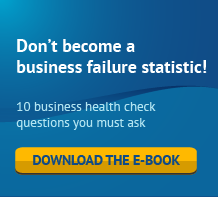From 1 July 2018, employers with 20 or more employees will need to start reporting using Single Touch Payroll. In July 2019, the same will extend to businesses with 19 or fewer employees.
Part of the government's initiative to cut red tape, Single Touch Payroll will streamline the way you report wages, superannuation and other figures by providing information to the ATO in real time. There are some things, however, that you'll need to do before the transition.
What is Single Touch Payroll?
When your business reports using Single Touch Payroll, you'll automatically submit the following to the ATO:
- Salaries and wages
- Deductions and other payments
- Allowances
- PAYG withholding
- Super information
Single Touch Payroll allows you to file reports while completing a task you'd be doing anyway: paying employees.

How can your business prepare for Single Touch Payroll?
By 1 April 2018, employers will need to conduct a head count of everyone on payroll. This will inform whether you're a 'substantial employer' or not. If you have more than 20 employees as of 1 April 2018, you'll need to transition to Single Touch Payroll by July.
The next thing employers will need to do is ensure their reporting software is compatible. The ATO has been working closely with developers to get everyone up to speed before July 2018, but you'll still want to check that your's is up to date.
#Employers: Got 20 or more employees? #SingleTouchPayroll will change the way you report their tax & super info. See https://t.co/lm2hpgeLhf pic.twitter.com/uKndKTFLrg
— ato.gov.au (@ato_gov_au) October 31, 2017
Finding the right professional help
You won't need to change the way you pay – you can continue to pay weekly, fortnightly or monthly and can even keep different pay cycles for different employees if that's your usual practice.
It's important, however, that employers take a good look at things like payroll codes and classifications, as well as calculations around severance payments and bonuses. This is where an experienced small business tax consultant can add significant value.
Come April, it's essential the numbers you process are as correct as possible. Otherwise, you risk not only payroll problems, but also issues with the ATO who will be looking much more carefully at your reporting this year.
To this end, employers should get in touch with a small business tax professional now while there's still time. At Accountants Australia, we specialise in small business advisory as well as tax consulting, making us the ideal partner for your transition to Single Touch Payroll. To find out more, reach out today.







